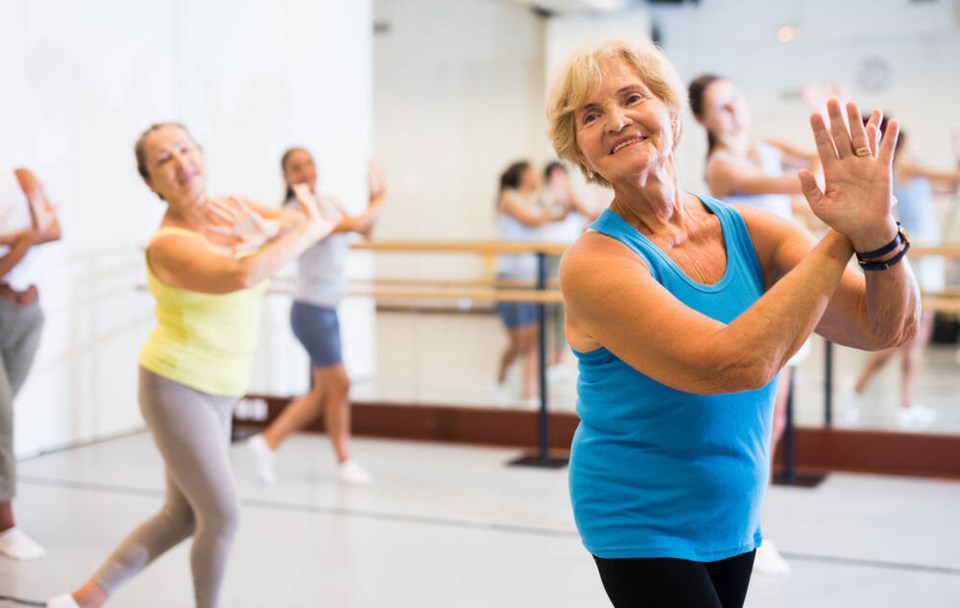There is a lot of talk in the news, amongst professionals and seniors and their family and friends, that staying healthy is a worthy goal for older people. But why we might ask?
The United Nations says that the world’s population is ageing.
They say that “virtually every country in the world is experiencing growth in the number and proportion of older persons in their population. Population ageing is poised to become one of the most significant social transformations of the twenty-first century for nearly all sectors of society, including labour and financial markets, the demand for goods and services, such as housing, transportation and social protection, as well as family structures and intergenerational ties.”
On the April 2022 Statistics Canada website, they say “Over 861,000 people aged 85 and older were counted in the 2021 Census, more than twice the number observed in the 2001 Census and that the population aged 85 and older is one of the fastest-growing age groups, with a 12% increase from 2016.
As well, over 9,500 centenarians are now living in Canada — a 16% increase from 2016. These statistics also tell us that these increases will have major implications for Canadian society.
Notwithstanding the broader social and economic implications of an ageing population, those of us who are in that ageing population of seniors want to have the best possible quality of life as we age. By taking preventative measures now, we can age well at every stage of our aging life span.
Ageing well has implications for us as older adults and the community we live in. If we age well, we can better contribute to our community as a consumer, a volunteer, and if necessary, as an essential caregiver to family and friends. It is expected that if we age well as an individual, we can experience an excellent quality of life.
In my columns over the years, I have stressed the trifecta of a healthy lifestyle: eating well, exercising and staying connected to community.
Paying attention to these will go along way to ensure that you age well.
On the MacMaster’s Optimal Ageing Portal website, they also suggest taking care of your mental health, getting enough sleep, identifying risk factors for disease, and more. I would suggest that affordable housing and accessible transportation also contribute to older people ageing well.
Eating well promotes and supports social, physical, and mental well-being for everyone, at all ages and stages of life.
Good nutrition, no matter what age you are, is essential for good health.
The MacMaster Optimal Aging Portal says, “Nourishing our bodies with healthy, whole foods can help with everything from weight loss to improved mood and can help manage conditions like high blood pressure or diabetes and contribute to better heart health”.
Exercise is one of the key preventative health choices contributing to seniors’ health and wellbeing.
The Public Health Agency of Canada (PHAC) says that exercise improves your balance, reduces falls and injuries, helps you stay independent longer and helps prevent heart disease, stroke, osteoporosis, type 2 diabetes, some cancers and premature death.
Getting a good night’s sleep has been touted over the last few years as a tool for healthy ageing. Not only is it satisfying to get a full night’s sleep, but it can potentially reduce the risk of developing anxiety, depression, cognitive issues, and physical harms such as heart disease.
Supports such as affordable housing can relieve us of the anxiety in our older years of being underhoused or homeless.
Good transportation gets us out of our homes so that we can interact in our community, which reduces the potential for social isolation.
HealthLinkBC says, “People without strong social networks may become isolated. Social isolation can lead to reduced mental and physical health, as well as depression. When older people participate in their communities, everyone benefits.”
Taking care of our mental health is also essential to ageing well.
The World Health Organization’s website states that the most common neuropsychiatric disorders in the older adult age group are dementia and depression. They also list anxiety disorders, substance abuse problems and self-harm as concerns for those aged 60 or older. It’s essential to get help if you or a family member or friend are experiencing any mental health issues.
I am not sure how long I’m going to live, but if it is going to be 10, 20 or perhaps 30 more years I want to age well so I can enjoy life and contribute to my community.
Margaret Coates is the co-ordinator of Lionsview Seniors’ Planning Society. She has lived on the North Shore for 52 years and has worked for and with seniors for twenty-seven of those years. Ideas for future columns are welcome – email [email protected]



